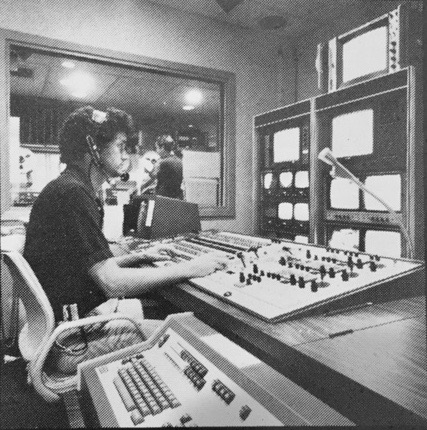I remember distinctly the first time anyone said, “Have a nice day.” It was in the last century, circa 1970’s. I was in Baltimore where I produced and directed The Arnold Zenker Show, a morning talk show at WJZ-TV. Carrie Peterson, an Associate Producer was seeing a guest out. Instead of just saying “Thanks for doing the show” or even “Bye!”, she cheerily said both and then added a phrase I’d never heard:
“Have a nice day!” she said.
Carrie was a very cheery person. She was also smart and nice. If I had to use just one word to describe her, though, “cheery” would be it.
Or “chipper”, maybe. She was chipper, too.
They shook hands and off he went. As she walked by me, I said, “what’s with ‘Have a nice day?’”
“I just heard that the other day”, she said. “I thought it was a cool. You know. And new.”
(Did I mention this was decades ago?)
“Well, I guess. But …‘Have a nice day’ as opposed to what, ‘Have nasty day’?”
And then: “Hey, Carrie! How about, ‘Have a really nasty day… and a nastier night!’”
She gave me a “whatever-you-had-for-breakfast-get-over-it!” look and went into her office.
Guess who was not having a nice day? Yep. Arnold had just informed me that the guest I had booked that day was duller than a preacher on Monday morning and making him seem interesting was like a being nice to IRS agent.
Since then I’ve noticed we say a lot of things to each other don’t mean anything close to what we say.
You go to a restaurant with your son and the waiter says, “I’m Fred (or Sally or Bozo). I’ll be taking care of you.”
(Really? How about paying my electric bill? My grandmother thinks I’m my father. Could you straighten her out? Or my son here. He plays video games all day instead of looking for a job. Could you get him to take a shower, or maybe pick up his room? How about just getting him to answer his phone!)
Later on, just as I’m finally convincing my son that growing up is a good thing, the waiter butts in with “How’s the food?” And while I am answering politely, my son rethinks the whole thing!
The newest way of saying, “I don’t know” or “I have absolutely no idea”, is “I’m not sure”.
You go into a grocery store and ask a worker where the light bulbs are.
“I’m not sure”.
“Well, where do you think they might be?”
“I’m not sure.”
“The paper goods aisle, perhaps?”
“I’m not sure.”
“Stationary aisle?”
“I’m not sure”
“Meat? Cereal? Produce?”
“Not sure.”
“Any idea what day it is?”
It took a few times, but now I give up at the first “I’m not sure”. It’s just better for the universe. I’m sure.
Back to the restaurant. The server brings your food and says, “Enjoy!”. Not “I hope you enjoy this”, or “please enjoy”. Just “enjoy”. It’s an order. I haven’t done it yet, but one day I’m just going to blurt out, “Uh, No!”
As time has gone on, I’ve become much smarter about phrases that don’t mean what they say. For example, the first time I heard, “Your call is important to us” and “We value your time”, I knew neither was true. The robot had never even met me.
I am waiting for the time when I can leave a message for the robot: “No, it isn’t important to you and no, you don’t value my time. But you know what? They’re both important to me.” Followed by a loud Bronx cheer.
When I was a kid and someone asked, “How are you?” I might have answered, “Not good. I got an F on my English test and the dog pooped on the rug and I got blamed for not taking him out and …” And they might have said, “Well that’s too bad… or “Boy, dog poop? That stinks!”
In other words, “How are you?” was once a real question.
Today when I’m out walking my dog, and someone walks up and says, “How are you doing?” they keep walking. What they really mean is “I’m just being nice – Do not even think about talking to me.”
So I respond with “How are you doing?” And I keep walking. Then I tell my dog how I am.
I haven’t seen Carrie Peterson since the 70’s, but I have a feeling she started the whole thing.
